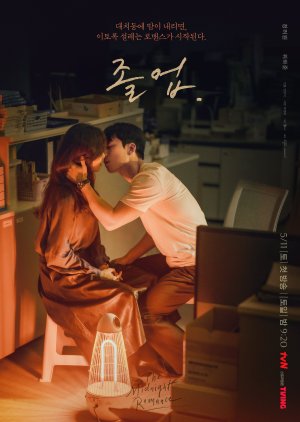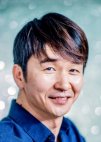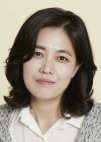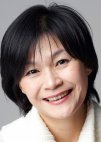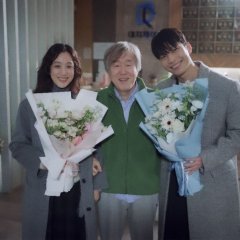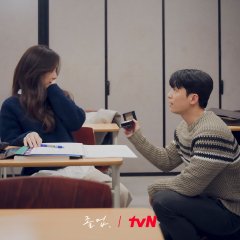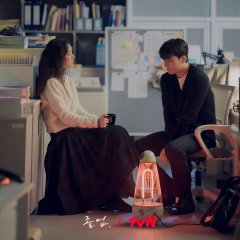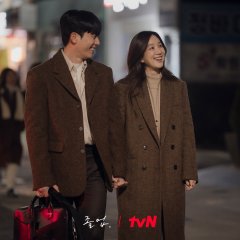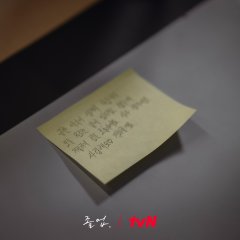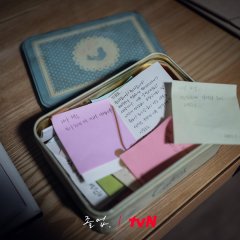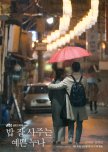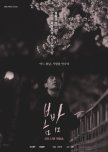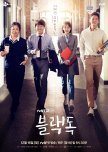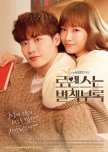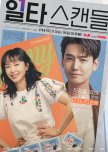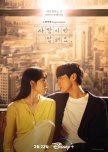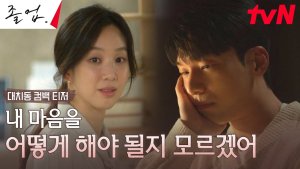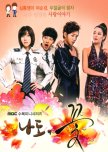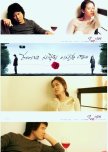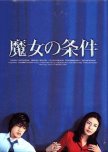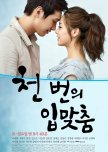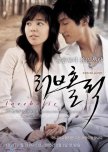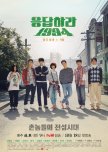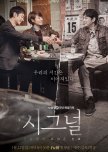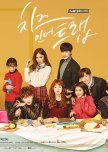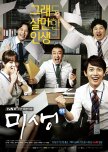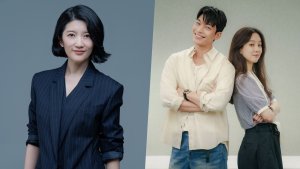 Jang So Yeon is confirmed to star alongside Wi Ha Joon and Jung Ryeo Won in a new K-drama
Jang So Yeon is confirmed to star alongside Wi Ha Joon and Jung Ryeo Won in a new K-drama After resigning from a big company, Lee Joon Ho returns to the academy where he'd studied, this time as an instructor. He's motivated by his lingering fixation on his first love, academy teacher Seo Hye Jin. Seo Hye Jin has been a Korean language instructor for the past fourteen years. She became a star after the legendary incident labelled “Miracle of Daechi.” Just when her life begins to feel settled, former pupil and troublemaker Lee Joon Ho, whom she'd helped get into a prestigious university ten years previously, shows up and stirs up chaos. (Source: MyDramaList) Edit Translation
- English
- 한국어
- 中文(台灣)
- 中文(简体)
- Native Title: 졸업
- Also Known As: Graduation , The Midnight Romance , Joleob
- Director: Ahn Pan Seok
- Screenwriter: Park Kyung Hwa
- Genres: Romance, Life, Melodrama
Cast & Credits
- Jung Ryeo WonSeo Hye JinMain Role
- Wi Ha JoonLee Jun HoMain Role
- So Ju YeonNam Cheong Mi [Korean language instructor]Support Role
- Kim Jong TaeKim Hyun Tak [Director]Support Role
- Kim Jung YoungWoo Sung Hee [Vice president]Support Role
- Kil Hae YeonKim Hyo Im [Counseling director]Support Role
Reviews

A refreshingly sassy KDrama, critically reckoning with the South Korean education system (and love)
“The Midnight Romance in Hagwon” promises a love story with its international title - and that's what we get. Jung Ryeo-won and Wi Ha-joon are creating the relatively adult, authentic aura of a tender but complicated love relationship between a former graduate and his former tutor. Yet, the two are more than a couple. Today, as teachers, they inspire each other to teach didactically creative. And in doing so, they also inspire their students.Thus, the KDrama, which in the original means something like “The Graduate”, basically offers more than a romance. It is rather a quite critical reckoning with the South Korean education system. The criticism: It's less about education than about grades -and a lot of money is involved in getting good grades. The students learn the correct answers to their questions. They therefore receive any effective support outside of school, mainly in the tutoring academies, provided their parents can afford it. However, there is one thing, the students don't learn: how to ask the right questions. They don't learn to question or get to the bottom of something. They know their material they have to memorize and what formulas they should be able to apply. Everything else is not part of the entrance exam or a prerequisite for qualifying for admission to one of the three large SKY universities. It has to be Seoul National University, Korea University or Yonsei University (S, K and Y), if anyone in South Korea is to become something...
"The Midnight Romance in Hagwon" aka "The Graduate" takes stock of the prevailing, dubious, even misleading values of a society, still trying to convince the people that they have to obsessively achieve something in order to be valuable of some sort.
When it comes to the academy teaching staff, it is about tailor-made exam preparation, courting parents an acquiring new students. Looking to the right or left, seeing a student as an individual human being with dreams and needs, let alone respond to them? Oh my! Whether it's students or scandals, it's never about the people. It's always about the money. A lot of money. The competition is enormous. The South Korean education market is a lucrative economic engine that is humming along happily.
This KDrama offers a wonderfully staged, emotionally sensitive and vivid approach to these issues, using the fate of various ambitious, highly motivated teachers who would like to try something different, but are not allowed to. They are surrounded by elitist parents who are ready to do anything for the glorious future of their beloved, dearest offspring. They are also surrounded by fiercely competitive academies that are just waiting for someone to make a mistake, because then those protégés can easily be poached and their own coffers start ringing instead...
What a refreshingly sassy KDrama, dealing with all those issues...

A cry from the heart about the current state of arts education in Korea
Ahn Pan Soek always chooses to highlight a social issue in his dramas and essentially this drama explores the current state of arts education in Korea with a romance blended in. If you hope it’s the other way around you will not only be disappointed, but probably miss the point entirely. Having said that, the romance that does unfold is beautifully written, directed and acted. And the lesson in arts education is a rallying cry to bring it back to life and reveal it’s passionate, emotional heart.He likes to find writers who can reveal both the underbelly and the heart and here he has collaborated with yet another subtle and mature writer, Park Kyung Hwa. She only has one other credit to her name which is delighting in the rating of 7.1 on the MDL richter scale. Obviously not earth shaking. Unfortunately there are no reviews, so I have no idea why it was rated so low. But here she is ably proving herself to be a typical Ahn Pan Seok collaborator with a nuanced and obviously well-informed script. She manages to highlight the different responses made by each character in pressure situations and handles the character development well, giving the viewer enough verbal information to follow along with the complex internal emotional landscapes that she is playing with. The emotional games that get played out in the final two episodes are especially good.
The pacing is very even and focuses on slow studies of people’s reactions. The life lessons learned here are not on a romcom level, they are difficult questions around the intersection between ethics and ambition, and, compassion and competition, requiring some thought and sensitivity to follow and appreciate. It really takes off about two thirds of the way through, at a point where often a drama flags.
The characters are closer to realistic so have good and bad about them, but are not exaggerated. For some they might be too ordinary, but I think that the actors do a good job at showing the hidden undercurrents and the depth is there if you look for it. At the start the FL makes some quite unprofessional moves and the ML bludgeons his naive way ahead. But this slice of life story leads you through the realistic steps that will change both their minds and their attitudes. At times there’s a moral superiority at work which might be a little difficult to swallow. But this is dramaland after all and the antagonists are kept within the bounds of credibility.
As with other Ahn Pan Seok dramas, the love story at the heart is sensitively portrayed. High five to Jung Rye Won and Wi Ha Joon who have great, believable chemistry. The uncertainty and awkwardness of the beginnings of intimacy are beautifully brought out. And the bedroom scene is such a joy. Full of warmth and naturalness. Ahh Pan Seok and his crew obviously manage to create an environment on set that allows the actors to feel comfortable and easy, so that their laughter and intimacy seem more real.
The supporting cast is a panel of very familiar faces if you are an Ahn Pan Seok stan. All of them are good and there are no two-dimensional cardboard cut-outs. As for Seo Jung Yeon’s hair, it is a sculpture in itself. It’s got enough product in it to hold up the Sydney Harbour Bridge and she wears it with impressive style. Who needs Medusa when you’ve got her death-stare boring into you from across the desk.
Overall the drama is a damning indictment of the Korean arts education system and the forces that keep it on the straight and narrow, where free thinking and self-learning is sacrificed to conformity and examination grades. In terms of thinking it creates more of the same, rather than individuals who can think outside the box and move in unique directions.
The majority of my working life was spent in “western” universities and I watched them change in order to accommodate the rote learning styles of the many countries whose students provide the financial survival of western education, once political policies turned them into businesses. Much has been lost in the process.
A PhD was once an entirely original piece of research in a field not previously studied. It required breaking new ground in an area carved out by the scholar. Now it has often become being included in someone else’s research programme to write papers and includes taught courses. Many students flounder if they are not told exactly what to do and how to do it.
Gone is the education in imaginative and original thinking and the confidence to explore academic freedom. This was the actual purpose of an arts education. But the drama reveals how that is undermined, such that the student never gains this skill, but only learns to parrot what is thought by someone else. At one point the character Lee Jun Ho (Wi Ha Joon), in his battle to teach differently, says “The smart ones… understand it will become an asset of their lifetime.” The whole essence of this thinking is carefully revealed in Episode 12 and it is explicitly delineated in step by step terms like a cry from the heart.
I won’t elaborate on, imo, how self defeating it is to push children in this way to rote learn so that they can get into a university (Seoul National) which is currently (June 2024) ranked at 62 on the THE scale of global universities, 14th in Asia, with an arts and humanities ranking of 176-200. (https://www.timeshighereducation.com/world-university-rankings/seoul-national-university) That’s indicative of a good university, but nothing exceptional. Children who get into the top university in the world - Oxford University - do not study in this way or for such punishing and unsustainable hours. Go figure…
Where Ahn Pan Seok and I completely part company is the music. My musical taste is pretty eclectic and I’m willing to embrace almost anything if it’s good. But banal and bland, predictable and pedestrian - nah. It’s not even as though you can just ignore it as background noise, tbh it’s often so cheerfully twee it attracts the ear. How he can be so subtle in his directing, yet have such naff taste in music is beyond me to understand. I’ve never watched a drama of his where the repetitive songs have not annoyed the hell out of me in every episode. Look, I’m sure there are people out there who love them, but I’m simply not one of them.
What I do like about his approach to music though is that he doesn’t always use it. His directing and the quality of the acting allows him to sometimes let emotional scenes play out without having to manipulate the viewers’ responses. They are good enough to stand on their own and silence is the thing that adds poignancy. Then immediately afterwards he’ll use something with brass and percussion at max reverb that wouldn’t sound out of place in a Marvel movie. What can I say…
As I have experience in the field and care very much about education I was probably able to read the message more thoroughly than most and as a result I really enjoyed this drama.

